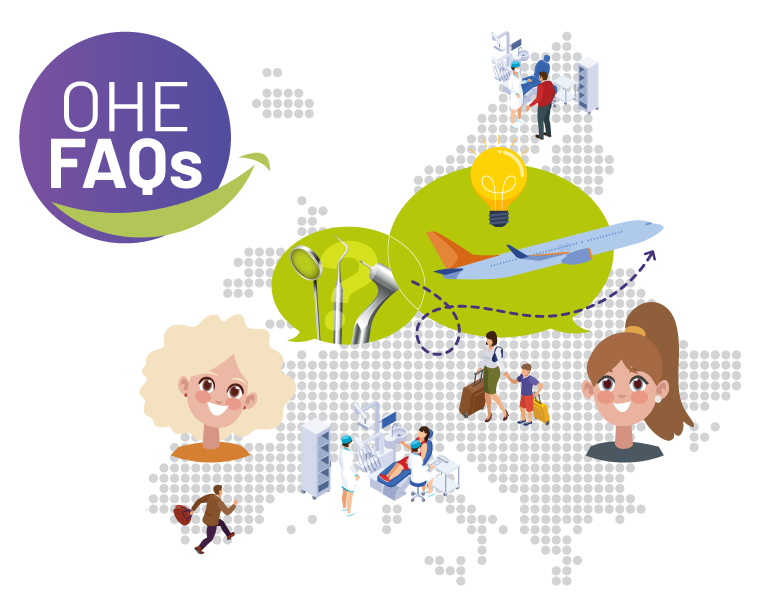The term Dentist is a protected title within the EU. This means the skills and competences needed to graduate are predefined in the EU's Professional Qualifications Directive. The aim of this directive is to allow free movement of goods and services. In theory this means if you qualify in one country you can practice in many. However, you need to be aware that some countries may require you to demonstrate language and other competence and, in some cases, regardless of where you graduate you are also required to do a state examination before you can practice.
We asked our students what is it they would like to have known before they became OHP students. The questions they provided are interesting and diverse. From these questions we have created the "it's good to know" series of information leaflets that we hope it will help future students make more informed decisions around studying OHPs.
Its good to know Leaflets Series
FAQs
We have also compiled some frequently asked questions identified by current oral health professional students. FAQs are organized into subcategories, why not explore this by clicking in the tabs below.
While the overarching graduating competences are similar, how these are delivered and assessed can vary considerably from country to country and even university to university.
This varies considerably and not all Universities or programs will offer you this. Generally, the Erasmus + exchange will occur in the semesters of a program, however it will depend of the agreement in place between the universities. There are other possibilities of abroad experiences during your study, such as voluntary, international exchange…
What countries you can take an Erasmus + module as part of your OHE program varies considerably between country and University. Erasmus+ requires Universities to have agreements in place. If this is a feature of your study programme it is very likely they will publish this on their website. You can start by checking out the schools report card on the O-Health-Edu datahub.
The fees you pay will vary from country to country and where you wish to study in a public of private institutions. Fees may apply for registration but also for the acquisition of specific materials for practical work and/or clinical activities.
Fees Whether the fees you or your family pay are tax deductible will depend on the tax payers location and rules and regulation applicable there.



